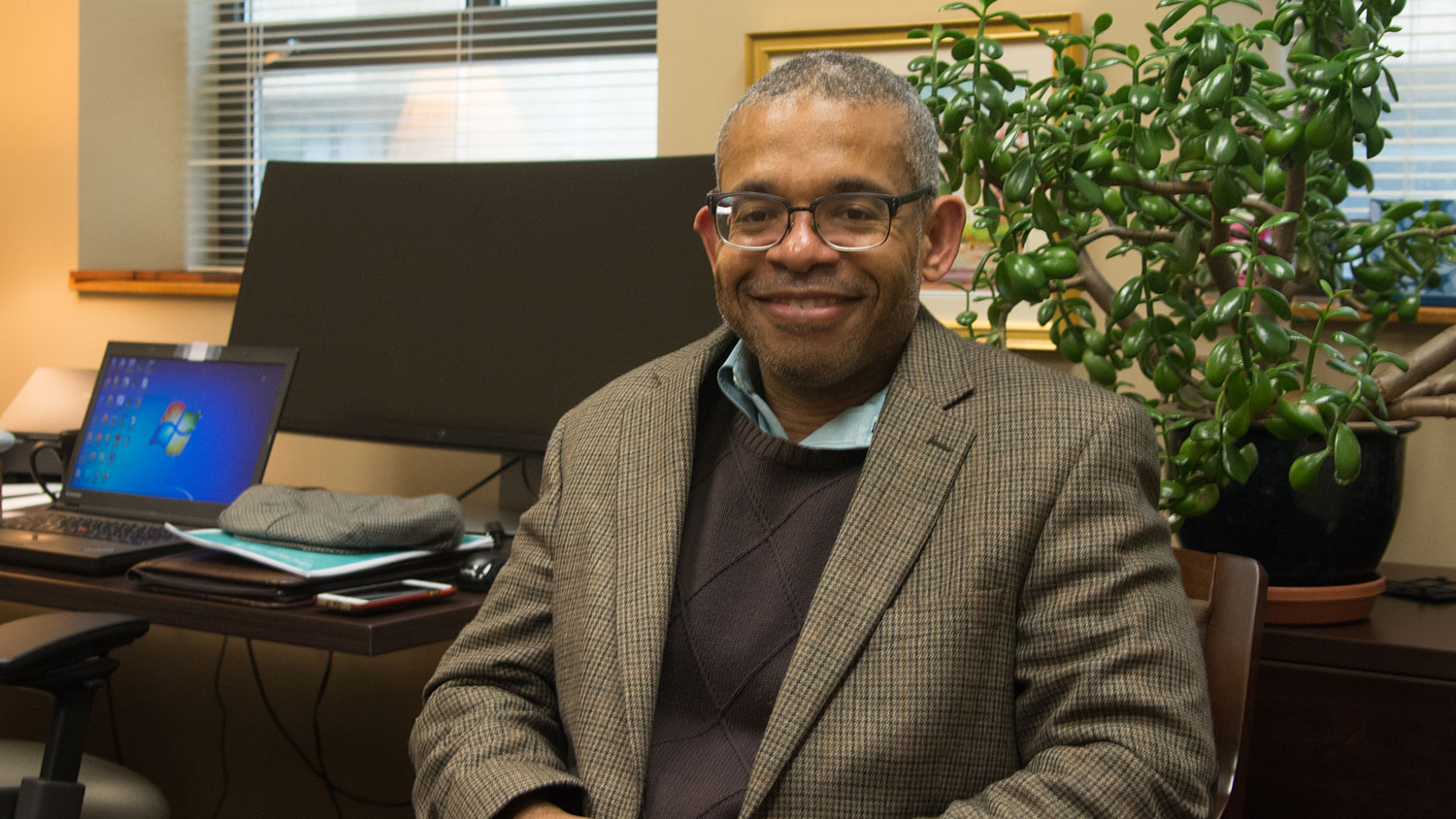$1.1M Grant Funds Underrepresented STEM Ph.D. Students

Joel Ducoste, professor of civil, construction and environmental engineering and assistant dean of graduate student advancement and faculty enrichment, talks about the National Science Foundation grant he cowrote that will sponsor 12 students for two years, with the potential to reapply for additional funding thereafter.
NC State has joined a select group of National Science Foundation – Louis Stokes Alliances for Minority Participation (NSF–LSAMP) institutions who provide support for African American, Latino, American Indian and Asian or Pacific Islander students through the Bridge to the Doctorate Program, which funds two-year fellowships “focused on providing post-baccalaureate support to a cohort of 12 students for the first two years of their STEM graduate studies and providing the necessary academic and research skills that will enable them to successfully earn STEM doctoral degrees and transition into the STEM workforce.”
Together with Roy Charles, diversity director of the Engineering Research Centers, and Ashleigh Wright, coordinator of the Science and Engineering of Atomic Structure (SEAS) NSF Research Traineeship in the Department of Materials Science and Engineering, Joel Ducoste collaborated to procure the funds, building on the work of Tony Mitchell a decade earlier. Recipients will be identified this month.
Students will conduct research in their intended programs, either in the College of Sciences or the College of Engineering.The funds will give students the ammunition to be successful, educating them about the transition from undergraduate to graduate roles, time management, best practices in research, proposal writing, submitting manuscripts to journals, giving presentations and achieving major milestones towards the Ph.D.
Students will also have the opportunity to interact with and participate in exchanges with Bridge to the Doctorate fellows in alliances at other public institutions, including North Carolina Central University, North Carolina A&T University, UNC Charlotte and UNC Chapel Hill, forming connections that may benefit them in future academic or professional settings.
Ducoste believes that building relationships is key to the success of these young academics. Working holistically for the community across multiple institutions benefits all of the institutions and the STEM fields as a whole. He has forged relationships with faculty at other institutions, participating in a seminar series that fosters research relationships and identifies potential faculty from other programs. He also mentors students, postdocs and faculty at other institutions, even those students who turned down the opportunity to study at NC State. He asserts that we want to see success both here and elsewhere for the good of all.
When speaking about why this funding is important to help broaden participation of underrepresented students in STEM, Ducoste cites the gradual building of support that has developed over time at the university, first through the initial grant in 2008 to help grow a base of graduate students in the Graduate School and College of Sciences and College of Engineering departments that sponsor visitation programs, through to the current grant and additional measures, such as the establishment of his position as an assistant dean in the College of Engineering. “Each of these pieces helps to show the university’s commitment to diversity in STEM fields. But more than just creating diversity, the hope that we begin promoting a culture of inclusion. We’re not there yet, and we must continuously work on it.”
Elizabeth Snively writes for the Office for Institutional Equity and Diversity.
- Categories:


